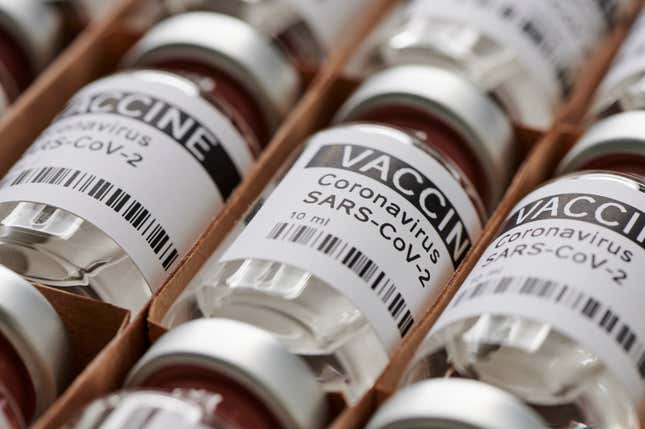
Given both the speed with which COVID-19 vaccines were made and the overwhelming need for them, it should come as no surprise that there’s been increased scrutiny about their effectiveness and potential side-effects. In recent weeks, AstraZeneca’s vaccine has been on the receiving end of that scrutiny, and Tuesday’s announcement by American health officials that the company may have submitted outdated data to prove the vaccine’s effectiveness has likely only intensified it.
According to the Associated Press, the announcement came at a less than ideal time for the pharmaceutical company. The use of its vaccine—which has been used mostly in European countries—was temporarily halted due to concerns about blood clots being a potential side effect of the vaccine. The vaccine is currently awaiting approval for use in the U.S., and the company announced on Monday that a study of 32,000 mostly U.S. volunteers showed it’s vaccine was 79 percent effective in preventing COVID-19.
Late Monday, the National Institutes of Health released a statement expressing concern that AstraZeneca’s results may have included “outdated information from that trial,” which may not give a complete view about just how effective the vaccine truly is. AstraZeneca issued a response, telling the NIH that it will provide more up-to-date testing results and that its recent findings are consistent with its earlier ones.
While it’s not uncommon for the NIH to find discrepancies in data, it is unusual that these discrepancies are handled in such a public manner. Dr. Jesse Goodman of Georgetown University, a former vaccine chief for the Food and Drug Administration, told AP that “It would seem that whatever this communication misstep is, at the end of the day the data will have to stand for itself.” Ultimately, it will up to the FDA to determine whether or not the vaccine is suitable for public use.
In an interview with Good Morning America, Dr. Anthony Fauci of the NIH said the situation was “really is what you call an unforced error” and added that it demonstrated the rigorous safeguards the vaccines have gone through before being released to the public.
From AP:
Every vaccine trial is overseen by a “data and safety monitoring board,” or DSMB. These boards include scientists and statisticians who are experts in their fields but have no ties to either the government or the vaccine makers.
In the AstraZeneca study, just like studies of the other vaccines in use, some participants get the real vaccine and the rest get dummy shots, and neither they nor their doctors know which is which. Only the DSMB has the power to unlock the code of who got which and peek at how the volunteers are faring before a study is finished.
The DSMB watches for safety concerns and also deems when the study has met pre-determined endpoints showing it’s time for an effectiveness calculation. It was the NIH-appointed DSMB that raised the concerns about AstraZeneca’s data.
On Tuesday, AstraZeneca said that the data it first released included COVID-19 cases that occurred up to Feb. 17, as the study rules specified, and that it is continuing to analyze cases that have occurred since then. It said a preliminary analysis of more recent data was consistent with what it had already reported.
As mentioned earlier, AstraZeneca has faced an uphill battle with regards to its vaccine, and these procedural missteps combined with the evasiveness of the company’s executives when asked to break down the data it’s using to prove the vaccine’s effectiveness hasn’t really helped. Still, the company is undeterred and plans to submit an application for FDA approval in the coming weeks.

